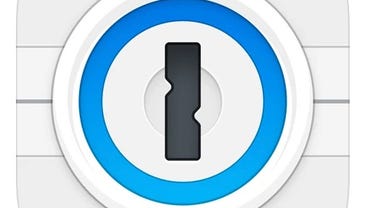LastPass vs 1Password: Battle of the password manager titans
Passwords are a fact of life, and if you’re one of those people who reuses the same couple of passwords because that’s all you can remember, then you really need to think seriously about a password manager.
But in a world where there are countless options, which one is the right one for you?
Here I’m going to look at two of the most popular options — LastPass and 1Password — and examine the pros and cons of each.
But before I go on, what is a password manager?
A password manager is an app, or more commonly these days, a combination of online services and apps that safely and securely store your passwords — it also securely distributes them to all your devices.
Because password managers are storing your passwords, it’s important to choose a trustworthy, reliable, and secure service. This is not a job you want to entrust to any old no-name company.
The two services I’m going to look at here are LastPass and 1Password. I’ve used both extensively for several months, and I’ve found them both to be very capable password managers. And while on the surface they seem similar, there are some key differences between the two that might influence which one you choose.
Note: Neither LastPass nor 1Password have had any input on this review, and neither company got to see it before it was published.
The plans
Let’s begin by comparing the basics of the plans on offer for each offering. It’s important to realize that only LastPass offers a free plan, but it has become so limited (the one-device limit is very restrictive) that I don’t recommend it for those wanting a free password manager.
Note: If you are looking for a free password manager, my recommendation is Bitwarden.
Like
- “Power user” feel
- Broad platform support
Don’t Like
- Very limited “free” offering
- Relies on browser extensions
LastPass
- Settings options allow all sorts of customizations via the web interface.
- Limited “free” option.
- Uses browser extensions on most desktop platforms.
- LastPass offers three “single-user and families” plans, along with separate plans for business users.
Free: $0
- Unlimited passwords
- Access on one device type — computer or mobile
- 30-day Premium trial
- Save and autofill passwords
- One-to-one sharing
- Multi-factor Authentication
- Password generator
Premium: $3 per month
- Includes all Free features
- Access on all devices
- One-to-many sharing
- 1GB encrypted file storage
- Security dashboard
- Dark web monitoring
- Emergency access
- Priority tech support
Families: $4 per month
- Includes all Premium features
- 6 individual, encrypted vaults
- Family manager dashboard to manage users and security
- Group and share items in folders
- Individually encrypted storages
- Personal security dashboards and notifications
1Password
- Feels “easier” to use, especially for those that don’t want or need to take deep dives into the service.
- Easy to set up and very easy to move to another device.
- Custom apps for all platforms.
- Extra protection from “secret key.”
- 1Password offers two plans for home users, along with separate plans for teams and businesses.
Individual: $2.99 per month
- Apps for Mac, iOS, Windows, Android, Linux, and Chrome OS
- Unlimited passwords, items, and 1GB document storage
- 24/7 email support
- 365-day item history to restore deleted passwords
- Travel Mode to safely cross borders
- Two-factor authentication for an extra layer of protection
- Share your sensitive information securely with anyone
Families: $4.99 per month
- All the 1Password features, plus:
- Invite up to 5 guests for limited sharing
- Share passwords, credit cards, secure notes, and more
- Manage what family members can see and do
- Recover accounts for locked out family members
Working with your passwords
How you’re going to be working with your passwords varies between the different services.
I don’t mind if I have to use a browser extension or an app, but I know that other people have their preferences.
Usability is so subjective that it’s borderline pointless to review because I can only tell you what I like and not what might work for you. But my feeling is that 1Password offers a simpler, cleaner approach, while LastPass is more basic and utilitarian.
While I’m overgeneralizing here, 1Password is better suited to the average user, while LastPass is a better choice for those who want access to the bowels of the password manager.
My advice here is to take LastPass and 1Password up on their free trial offer and see what works for you.
Encryption
I don’t really have any concerns about the security offered by either service. But there is one difference that’s worth bearing in mind.
Both services decrypt the data on your device, so there’s no risk of unencrypted data floating about the place. LastPass 256-bit AES encryption with PBKDF2 SHA-256 for master passwords.1Password uses 256-bit AES encryption with PBKDF2 password hashing for the master password, offering strong protection against brute force attacks. Additionally, there’s a 128-bit secret key backing up this master password.
What this means in basic terms is both are awesome, but 1Password offers an additional step that adds a little more security. That said, I don’t think I’d make a switch to 1Password just for the security of the secret key.
Multi-factor authentication and security
Relying on passwords alone is a bad idea, and having the ability to use multi-factor security significantly boosts the security offered.
Both LastPass and 1Password offer a wide array of multi-factor security options, including support for software authenticators and hardware keys (such as YubiKey).
Also: Why everyone should have this cheap security tool
There are subtle differences in how this is implemented across both services and the wide array of platforms that each support, but you get full multi-factor authentication support.
Both services also support specific device features such as Face ID/Touch ID on iOS and fingerprint readers on Android and other security features offered by platforms and operating systems. Again, this varies depending on service and the device, but it’s there for both.
Support
There may come a time when you need a little help. LastPass paid users to get premium support, but those on the free plan are limited to whatever information is on LastPass’s website. While the chances of you needing support is low, you can never rule it out.
While 1Password offers a broad range of support options, the one feature that this company has that elevates it over LastPass, in my opinion, is an active and supportive community forum. In my experience, users will get a solution to most problems here even quicker than going through the support channels, which are themselves quite fast.
The bottom line
The truth is that both LastPass and 1Password are excellent password managers. Some key differences might help you choose between one or the other. However, if you are still totally torn, I recommend taking each company on its free trial offer.
READ MORE HERE



